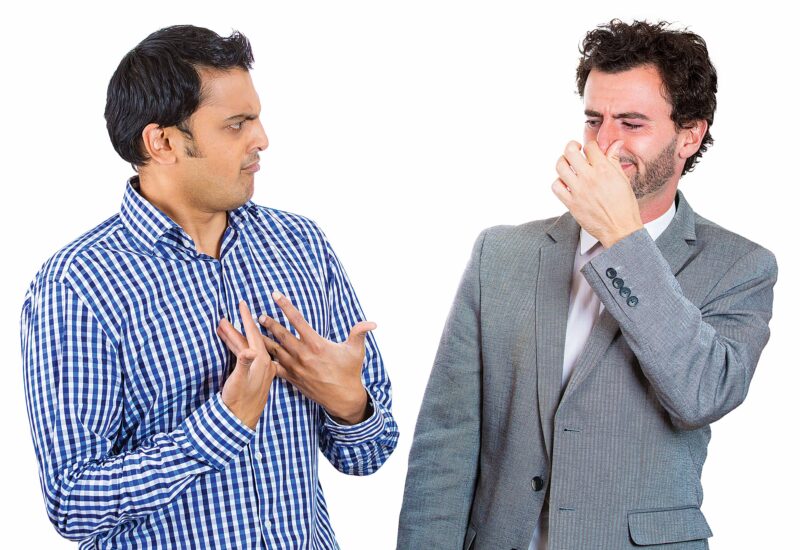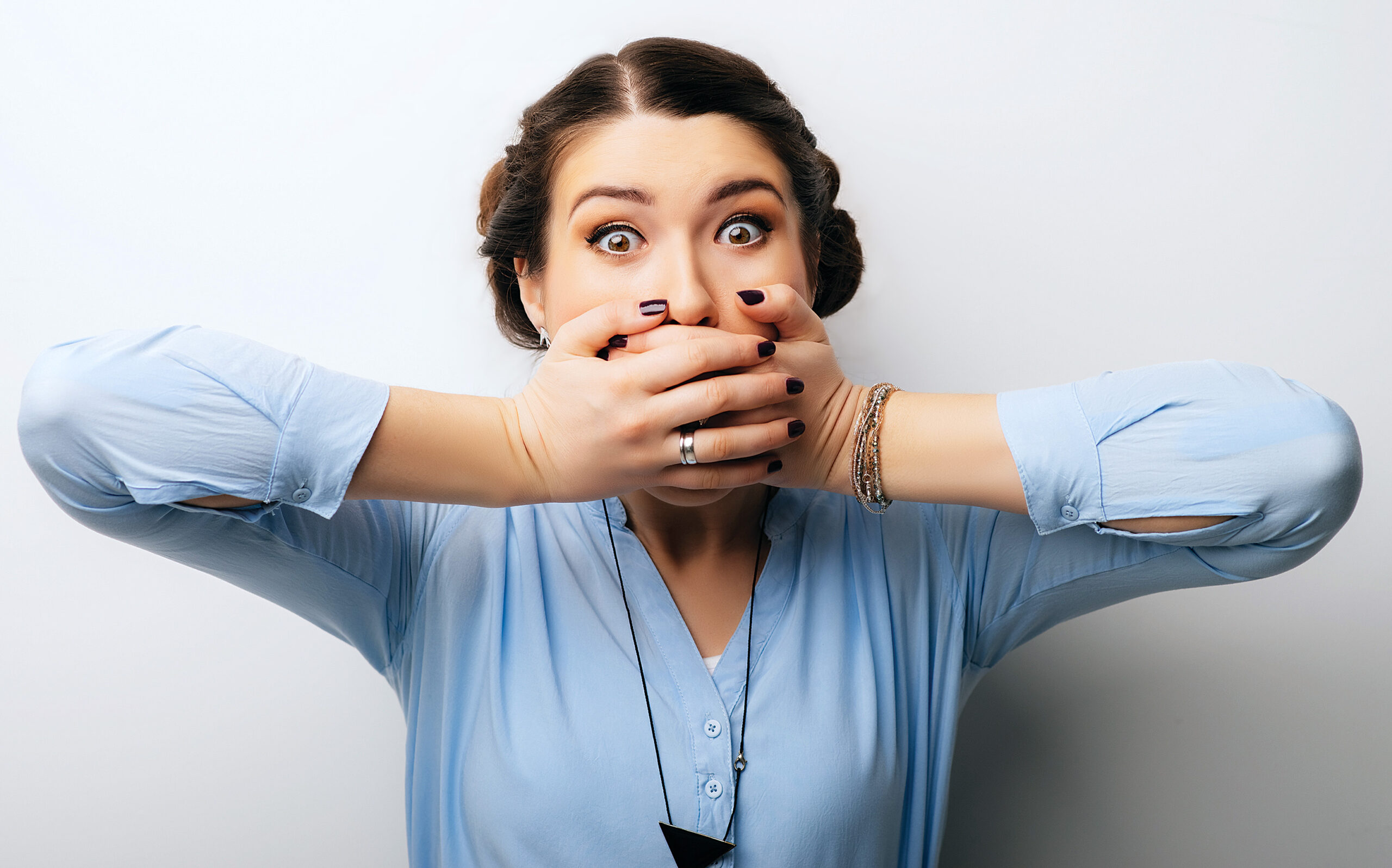Bad breath is not only embarrassing for yourself but also for those around you. It can ruin your first date or make a bad impression on your prospective employer. But help is here. Dr Parul R Sheth advises how good dental hygiene and self-care techniques can help you solve the issue.
The stinky breath is the ultimate mood slayer. The problem with bad breath is that it affects those around them. And this can be embarrassing and a cause of anxiety for the person. Medically termed as halitosis, it is a common condition that afflicts almost 50 per cent of population with varied severity. Bad breaths vary depending on the underlying cause. But most of the times, it comes from the gases produced by bacterial collection in the mouth, on the gums, teeth and tongue. The gases contain sulphur, which emit the annoying smell. The good news is that proper dental hygiene and self-care techniques can help you solve your stinky hellish problem.

Bad breath–do you have it?
You may worry about your breath for no reason. On the other hand, you may have bad breath and don’t know about it! It is difficult to assess whether you have bad breath or not. Try this out to check whether you have bad breath. Lick the back of your hand or inside of your wrist with the back of your tongue. In a few seconds, your saliva will dry. Stick your nose down and smell. If it smells bad, you have bad breath.
10 common bad breath triggers
- Poor dental hygiene: When you avoid brushing your teeth properly twice a day or do not floss regularly, food particles get lodged in the spaces between your teeth. The food rots, increases the gram-negative anaerobic bacteria, which give out bad odours. The bacteria can hide under your gums and in the ridges on the back of your tongue. Build up of plaque in the mouth also gives out a peculiar stink. Gum disease, too, can trigger bad breath.
- Infections in the mouth: Gum diseases, impacted teeth, cavities, etc, are some common bad breath triggers.
- Braces or dentures: If dental appliances are not cleaned properly, food particles lodged in these can decay and breed bacteria emitting a bad odour. Loose fitting dentures can also cause sores and infections in the mouth causing bad breath.
- Dry mouth: Medically termed as xerostomia, dry mouth can cause bad breath. The saliva in the mouth helps moisten and cleanse the mouth. Dry mouth, due to a salivary gland problem, certain medications, breathing through the mouth, etc, can result in bad breath. Snoring can worsen dry mouth and bad breath.
- Morning breath: Saliva production almost stops while you sleep causing the bacteria to grow and causes bad breath when you get up in the morning.
- Certain foods: Garlic, onions, exotic spices in foods, cheese, fish, acidic beverages, coffee and such foods can give out a strong smell. But this smell does not linger for long. You can either avoid these foods or mask it with breath mints or mouthwash. Bad breath can get worse when you eat too much sugar. Crash dieting, fasting and low-carbohydrate diets can also cause bad breath. The body breaks down fat, which produces chemicals called ketones that give out ‘ketone-breath’.
- Smoking and drinking: Tobacco in any form leaves a chemical smell in the mouth and can cause bad breath due to gum disease or oral cancer. Your breath might smell if you have consumed too much alcohol in any form.
- Health issues: Secretions from your nasal passages, sinus infections or bacterial infection in the nose or sinus cavities, are common causes of bad breath. Sore throat, throat infection, infected tonsils, thrush, bronchitis, diabetes, liver or kidney diseases may also be associated with peculiar stinks. Stomach problems and acid reflux can cause bad breath because of stomach contents leaking up into the food pipe.
- Medication: Antihistamines and diuretics cause dry mouth resulting in bad breath. Large doses of vitamin supplements can be the culprits. Nitrates, certain tranquilisers and some chemotherapy medications are known to be associated with
bad breath. - Pregnancy: Morning sickness, nausea, hormonal changes and eating foods to satisfy your cravings contribute to bad breath.
How to get rid of it?
Treating bad breath depends upon its cause. If you have bad breath because of sinus infection, diabetes, acid reflux etc. get yourself treated. A saline nasal wash can help get rid of bad breath due to smelly nasal secretions. Acid reflux can be treated with antacids and other medications.
If the problem is a side effect of taking a particular medication, talk to your doctor. Do not discontinue the medication without medical advice. Treatment of dental diseases such as periodontitis, gingivitis or gum disease can get rid of bad breath. If you have lingering bad breath, visit your dentist.
Try chewing on sugar free gum to stimulate saliva production and keep drinking water to prevent a dry mouth.

Mask it with mouthwash
Mouthwashes can temporarily mask bad breath. Experts recommend rinsing your mouth with anti-bacterial or anti-odour mouthwash. Most mouthwashes contain sodium chlorite or a combination of sodium chlorite mixed with zinc chloride. Studies have shown that rinsing with a mouthwash containing chlorine dioxide helps neutralise the smelly sulphur compounds produced by bacteria in the mouth and eliminates bad breath. Toothpastes containing antibacterial agents can also help in protection against plaque build-up.

Vital tips on tooth care
Dr Ajay Sharma, senior consultant dental surgeon, prosthodontist and implantologist, Max Healthcare, advises:
- Brush your teeth at least twice a day for a stink-free breath.
- Rinse your toothbrush with water after brushing and allow it to air dry until it is used again. Store it in an upright position and replace it at least once in 3-4 months.
- Brush immediately after eating or drinking foods that stain teeth and use a good bleaching agent,
available either over-the-counter or in your dentist’s clinic.
For convenient teeth-cleaning action, eat an apple. - Eat fruits and green vegetables to keep your teeth healthy. Foods such as apples are firm or crisp and help clean teeth; (they’re known as nature's toothbrush). The other choices include raw carrots, celery and popcorn.


